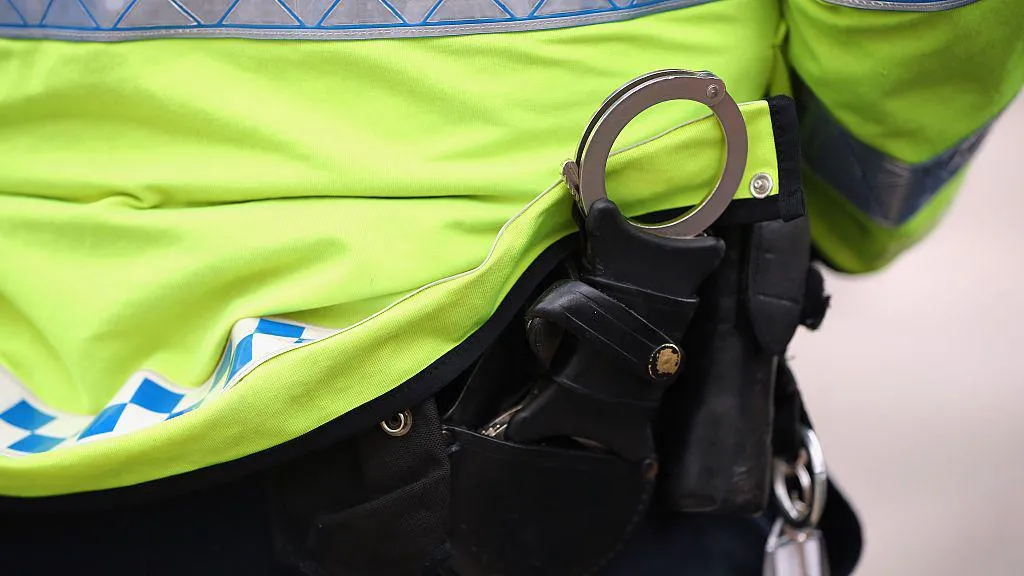
Police urged to consider making fewer arrests
Police are being instructed to consider making fewer arrests because of the lack of space in prisons. A letter from the National Police Chiefs Council (NPCC) circulated last week urges chief constables to think about "pausing" so-called "non-priority arrests". It also suggests halting planned operations where a large number of arrests could take place to "ease the pressure within the criminal justice system". It comes as court cases are being delayed and some prisoners are being released early due to overcrowding in prisons. The government said the impact of the pandemic and barristers' strike was putting pressure on jails, but Labour said the Conservative "mismanagement" of the criminal justice system "cannot go on". The NPCC letter dated 14 May, first reported in the Times, said: "Consideration is to be given to pausing non-priority arrests and any planned operations, where large numbers of arrests may take place to ease the pressure within the criminal justice system." Court cases delayed after pressure on prison places Prisoners could be released up to 70 days early It goes on to suggest a risk assessment should be completed as part of the decision-making process. "Public protection remains a priority and a considered threat, harm and risk assessment is to be completed when considering any pause of policing operations," the letter says. The letter also informs chief constables the government was activating Operation Early Dawn - an emergency measure still in place allowing the delay of court cases of some suspects due to prison overcrowding - in all English regions the next day. But it warns the measure is "not a sustainable long-term option for policing" and any further deterioration "risks public safety". 'Public safety our priority' The document is signed by Leicestershire Police Chief Constable Rob Nixon, the NPCC criminal justice lead, and Surrey Police Deputy Chief Constable Nev Kemp, the NPCC custody lead. They write that on 13 May, 282 prisoners were held overnight in cells across the country. No comparison figures are quoted. It goes on to say that on 23 May it is anticipated that pressures on prison cells will begin to ease, as a new early release scheme comes into effect allowing some prisoners to be freed up to 70 days early. The scheme was first introduced by the government in October, initially allowing release up to 18 days early, before then increasing this to up to 60 days in March. In a statement released in response to the Times story, Gavin Stephens, the chair of the NPCC, said: “We are working closely with criminal justice system partners to manage demand in the system and ensure that the public are safe. “Policing will always arrest anyone that they need to in order to keep the public safe, including policing protests and events and ensuring that people are arrested as expected.” 'Beggars belief' Labour's shadow justice secretary Shabana Mahmood said: "It beggars belief that police are being told to sit on their hands and ignore crime because the Conservatives have mismanaged the criminal justice system so badly. "Rishi Sunak's rap sheet now reads: the rushed early release of domestic abusers on to our streets, deliberate delays to trials and victims waiting years for justice. The public will be absolutely dumbfounded. This cannot go on." A government spokesperson stressed "public safety will always be its first priority". The spokesperson said: "That is why we have backed our police with the officers and resources they need to keep our streets safe and are introducing new laws to lock up the most dangerous offenders for longer while delivering the biggest prison expansion programme in 100 years. “We continue to see pressure on our jails following the impact of the pandemic and barristers’ strike and have initiated a previously used operational measure to securely transfer prisoners between courts and custody.”

